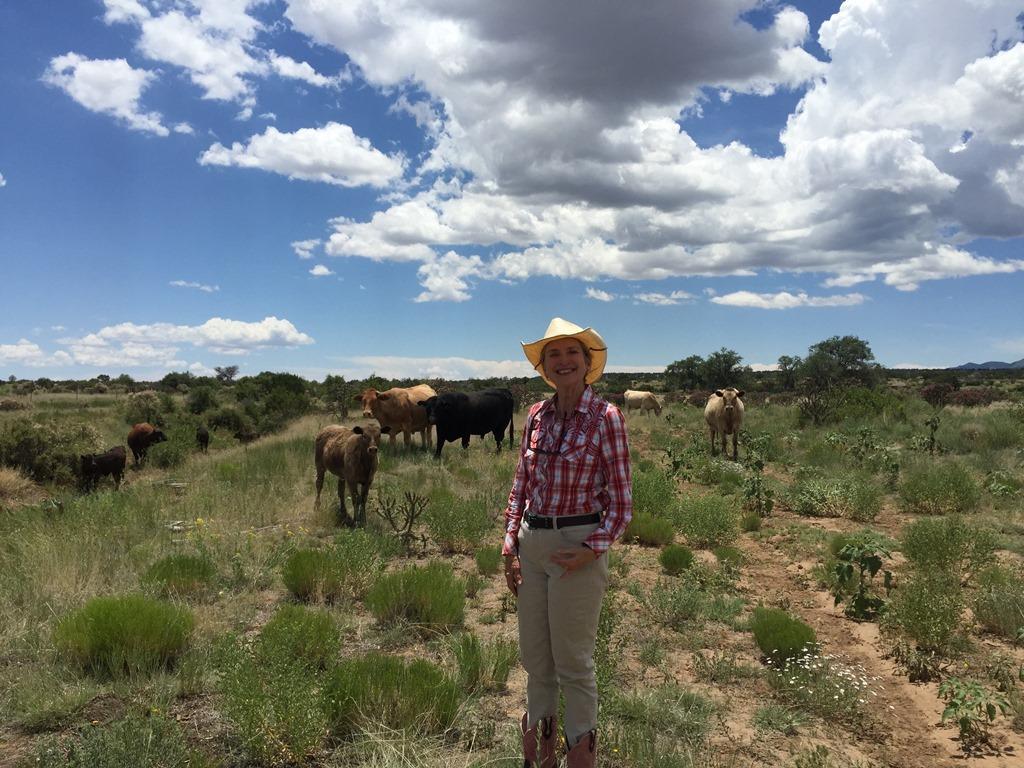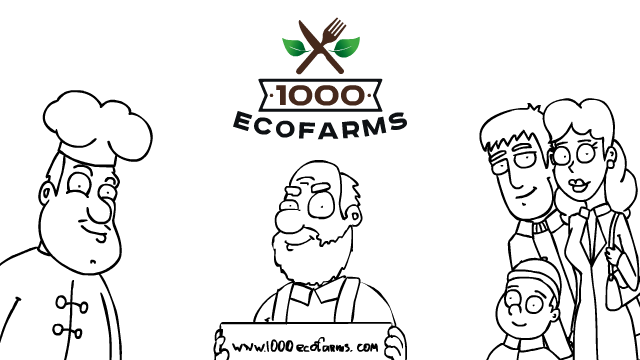Name: Joan Bybee
Farm: Mesteño Draw Cattle Co. / Mesteño Draw Ranch
Location: North of Mountair, NM
Products: Grassfed beef: whole, halves, quarters and 20 lb variety packs
Farm: Mesteño Draw Cattle Co. / Mesteño Draw Ranch
Location: North of Mountair, NM
Products: Grassfed beef: whole, halves, quarters and 20 lb variety packs
Favorite Thing About Your Farm
The animals are harvested at weaning—that is, at seven to nine months of age. They weigh about 600 lbs, and yield about 240 lbs of beef. Because they are young and the processor dry-ages the carcass for two weeks, the meat is very tender and flavorful. Another contribution to the good flavor comes from the range of native grasses and forbs that is the exclusive diet of the animals.
How did you get into farming?
My grandfather raised cattle and sheep on a large ranch in far southwest Texas, which gave me some familiarity with ranching. But I started out by just trying to restore the riparian areas and the rangeland on my small ranch in New Mexico. Since managed grazing is good for rangeland, I acquired a small herd of cows. Because of the benefits of grassfed and grass-finished beef for human and animal health, as well as the health of the planet, I chose to skip the feedlot phase and sell my beef directly to the people who will eat it.
Why is being an eco/local farm important to you?
I believe that people deserve to have access to healthy food that is produced with minimal use of fossil fuels and minimal disruption of nature's cycles. I am proud to manage grassland, as well-managed grassland sequesters more carbon than any other land use.
What do you think is the largest problem facing our food system today?
Corporate control.
The animals are harvested at weaning—that is, at seven to nine months of age. They weigh about 600 lbs, and yield about 240 lbs of beef. Because they are young and the processor dry-ages the carcass for two weeks, the meat is very tender and flavorful. Another contribution to the good flavor comes from the range of native grasses and forbs that is the exclusive diet of the animals.
How did you get into farming?
My grandfather raised cattle and sheep on a large ranch in far southwest Texas, which gave me some familiarity with ranching. But I started out by just trying to restore the riparian areas and the rangeland on my small ranch in New Mexico. Since managed grazing is good for rangeland, I acquired a small herd of cows. Because of the benefits of grassfed and grass-finished beef for human and animal health, as well as the health of the planet, I chose to skip the feedlot phase and sell my beef directly to the people who will eat it.
Why is being an eco/local farm important to you?
I believe that people deserve to have access to healthy food that is produced with minimal use of fossil fuels and minimal disruption of nature's cycles. I am proud to manage grassland, as well-managed grassland sequesters more carbon than any other land use.
What do you think is the largest problem facing our food system today?
Corporate control.
What do you want non-farmers to know about farming?
Some people seem to have the mistaken idea that farmers and ranchers are poor ignorant hicks. Nothing could be farther from the truth. Land management, raising animals and crops require a great deal of knowledge, and most farmers and ranchers have gone through college-level training. For large ranches, a great deal of capital is required and good financial skills. Of course, most farmers and ranchers love getting their hands dirty with the physical tasks, but success comes from the extensive knowledge that leads to good management.
If you weren't a rancher, what would you be?
I have already been what I'd be if I weren't a rancher. I retired after a 40-year career teaching at the university level and doing research in linguistics. I love this subject and still do research and writing, but I need my land, my cows, and my calves to bring me peace of mind.
Some people seem to have the mistaken idea that farmers and ranchers are poor ignorant hicks. Nothing could be farther from the truth. Land management, raising animals and crops require a great deal of knowledge, and most farmers and ranchers have gone through college-level training. For large ranches, a great deal of capital is required and good financial skills. Of course, most farmers and ranchers love getting their hands dirty with the physical tasks, but success comes from the extensive knowledge that leads to good management.
If you weren't a rancher, what would you be?
I have already been what I'd be if I weren't a rancher. I retired after a 40-year career teaching at the university level and doing research in linguistics. I love this subject and still do research and writing, but I need my land, my cows, and my calves to bring me peace of mind.







